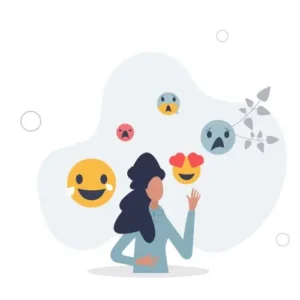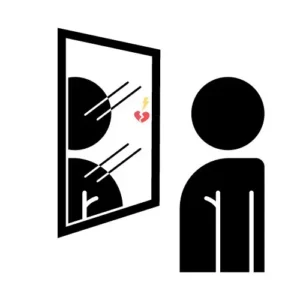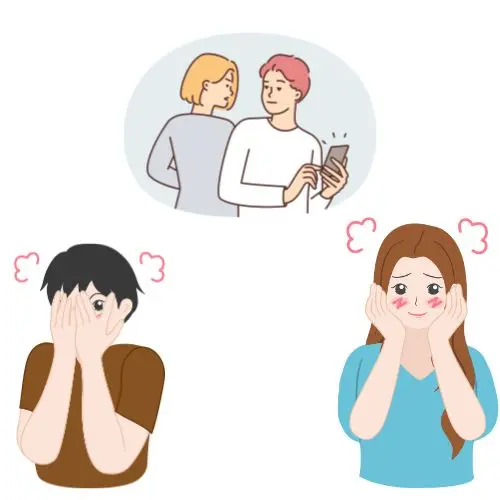Introduction
Emotions are among the most complex aspects of human behaviour and the management of relationships. While some emotions, such as happiness and sadness, are commonly recognized and experienced by all, others are more subtle and far from well-recognized or understood. This article will elaborate upon three salient self-conscious and social emotions: empathy, jealousy, and embarrassment. Specifically, we will consider what kind of emotions they are, how they impact our interpersonal behaviors and judgments, and in which regard they help us better interact with other people and achieve stronger relationships.
What Types of Emotions Are Empathy, Jealousy, And Embarrassment?

Emotions fall into several categories, such as positive, negative, self-conscious, or social emotions. Jealousy and embarrassment are included in any form of social emotion and self-conscious emotion besides empathy.
Thus, compassion or empathy is considered a social emotion because it reflects an empathetic understanding and sharing of others’ feelings. The capacity for empathy enables us to relate more thoroughly to other people, apart from assisting in the establishment of nurturing, compassionate relationships. Psychologists define empathy as the feeling of what another person is feeling or would be expected to feel in similar circumstances. Upon empathizing, one phenomenologically experiences the affective states of others while simultaneously maintaining a clear sense of self-other differentiation.
On the other hand, jealousy is a rather complex emotion. Elements of positive as well as negative feelings belong to it. At base, jealousy stems from a perceived threat to a valued relationship or social status. As a self-conscious emotion, jealousy signals our social standing or value to others may be at risk. It is frequently filled with the emotions of fear, sadness, and resentment toward a rival believed to impede the relationship. Jealousy encourages behaviors that help or restore the threatened relationship.
Another feeling of self-consciousness is embarrassment. We experience embarrassment when it seems that other people in a social context have evaluated our actions or appearance negatively. It is caused by real or perceived failure to attain social or personal standards. By embarrassing ourselves, we are sort of sending the message to the rest of the world that we know how wrong or unaligned our behavior was with social norms. Similar to shame and guilt, embarrassment is self-conscious because it comes from what we think others think about us. The goal of embarrassment lies in the restorative aspect of positive social identity and status.
Understanding How These Emotions Impact Relationships

Some subtle social and self-conscious emotions may illuminate human relations and interactions. Empathy enables people to be better connected, caring, and prosocial since they can understand other people’s views. Conversely, excessive empathy can also breed emotional contagion, burnout, and boundary problems if it is not balanced with self-care.
Although in many ways jealousy is seen negatively, jealousy plays a vital role in the evolutionary scenario of provoking behavior that increases bonding and commitment in close relationships. However, unchecked jealousy is toxic and emotionally abusive, and this poisons the development of trust within a relationship. Only healthy communication can assist in alleviating jealousy through reassurance, compromise, and respect for autonomy.
Social embarrassment plays a significant role in building cohesion and training group social norms. Concern about embarrassment leads to pressure toward conformity and cooperation. However, abusive or excessive shame or embarrassment might silence individual creativity and self-expression by not letting individuals take risks, ask questions, or admit mistakes. If embarrassment is to be replaced with any relationship, it must be established by creating psychological safety, acceptance, and forgiveness.
Understanding the triggers and functions of these complex social emotions is key to navigating relationships skillfully. With self-awareness and emotional intelligence, we can experience them in a way that enhances rather than hinders our ability to connect, trust, and support each other.
Improving Emotional Skills Through Self-Reflection

Developing the ability to recognize and manage empathy, jealousy, and embarrassment starts with self-reflection. Here are some suggestions:
- Pay attention to your internal experiences and how these emotions show up physiologically in your body. Are you mentally perspective-taking or feeling threatened?
- Notice your thought patterns. Do you assume the motives of others or perceive slights that may not exist? Catch and reframe unhelpful thoughts.
- Identify your emotional triggers and learn healthy coping strategies instead of reactions like withdrawing, lashing out, or avoiding issues.
- Express your feelings using “I statements” instead of accusations to have open conversations and resolve issues respectfully.
- Challenge negative core beliefs about yourself that lead to disproportionate shame or lack of self-worth. Recognize your humanity and value.
- Be curious about others’ perspectives through active listening without judgment. Validate their emotions while also communicating your truth.
- Practice acts of empathy, kindness, forgiveness, and generosity as these strengthen relationships and counter feelings of jealousy or embarrassment.
- Seek counseling or support groups if needed to work through relationship difficulties or unresolved emotional issues from the past.
With self-awareness and effort, we can master how these emotions impact our decisions and relationships for the better. Prioritizing emotional intelligence is key to developing fulfilling connections and living a balanced, meaningful life.
Conclusion
To sum it all up, empathy, jealousy, and embarrassment are social and self-conscious emotions that, though vital, play a complex role in human relationships. Their psychological functions, triggers, and effects can provide insight into fortifying interpersonal skills. With self-reflection and emotional regulation, we will be able to experience the same emotions in a healthy way, allowing these emotions to become positive components of well-being and the ability to connect. Social emotion mastery is a long journey; it pays rich dividends in building trust and compassionate relationships.

